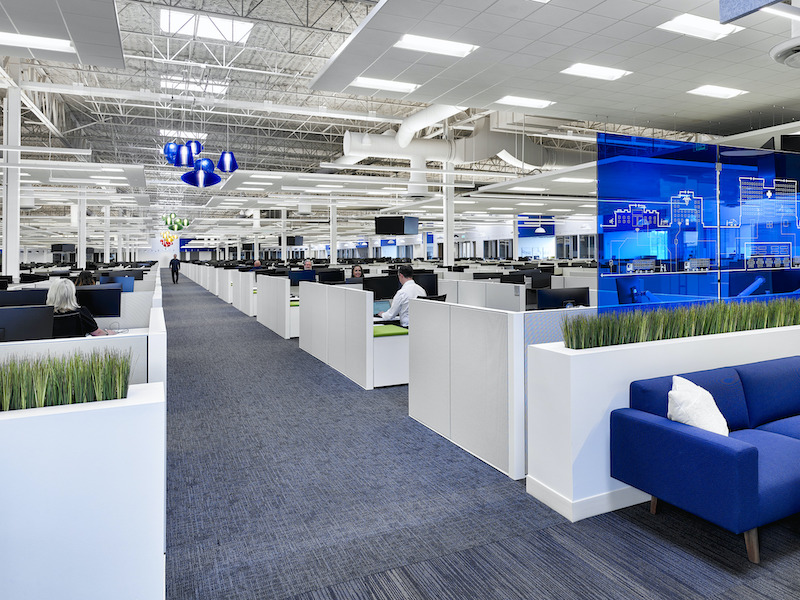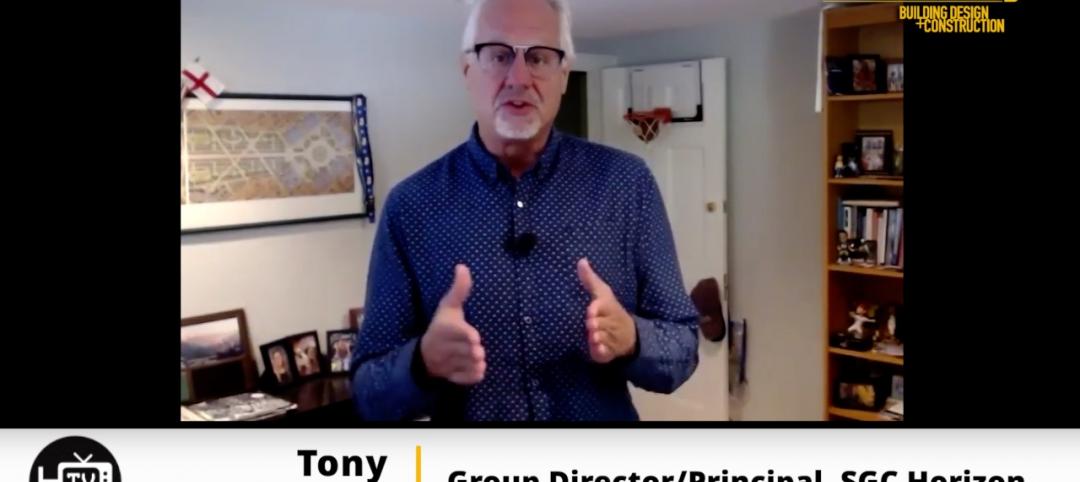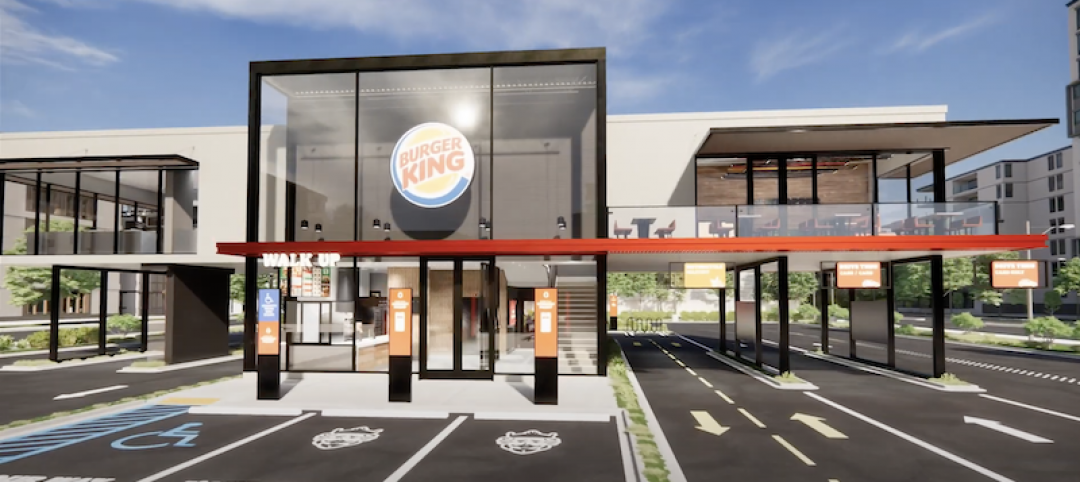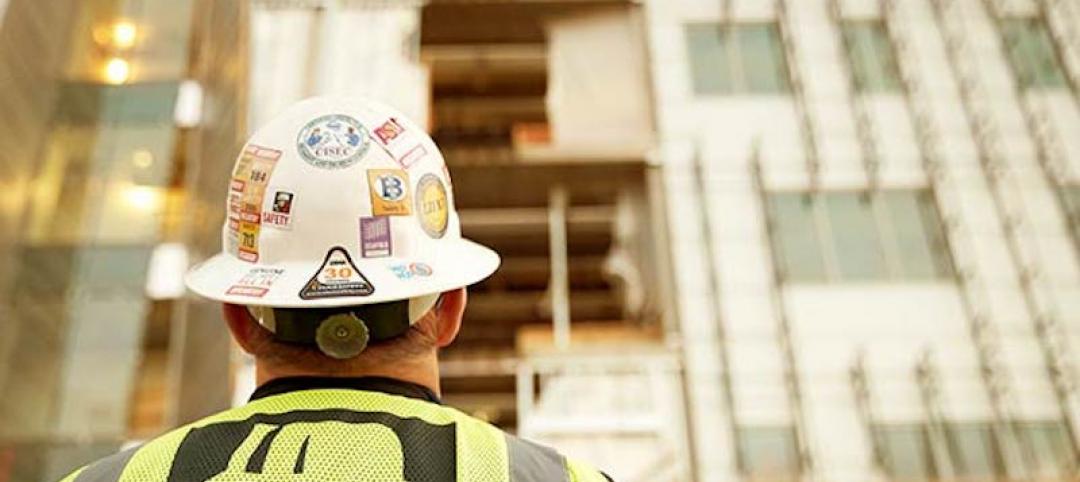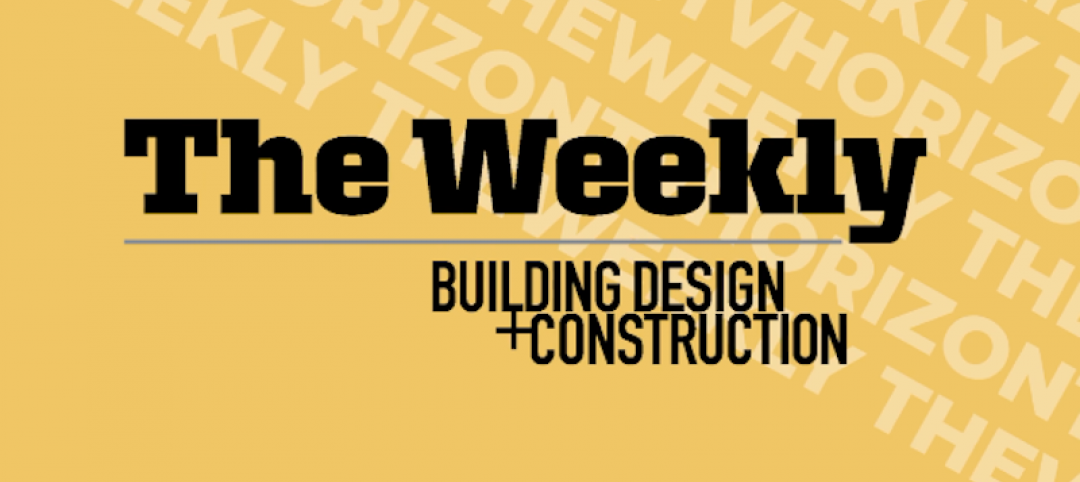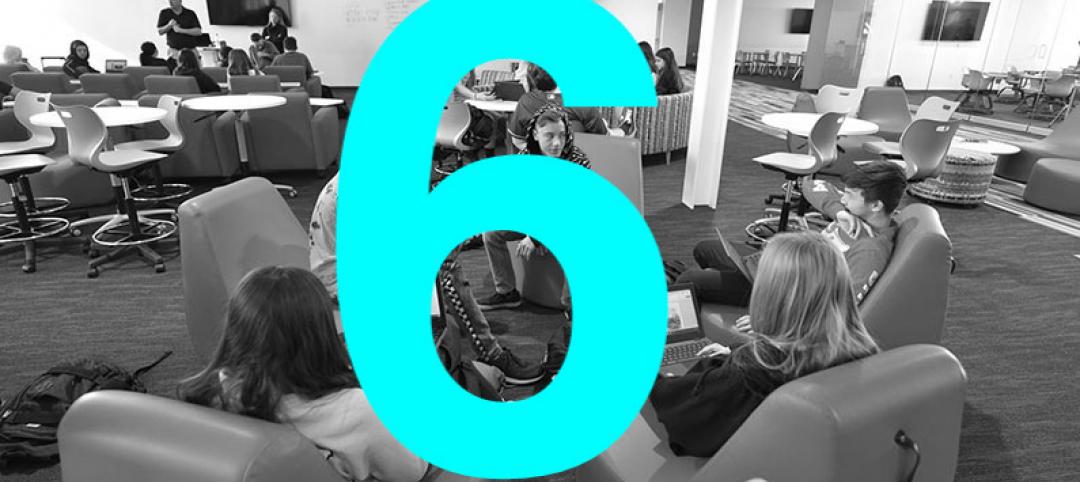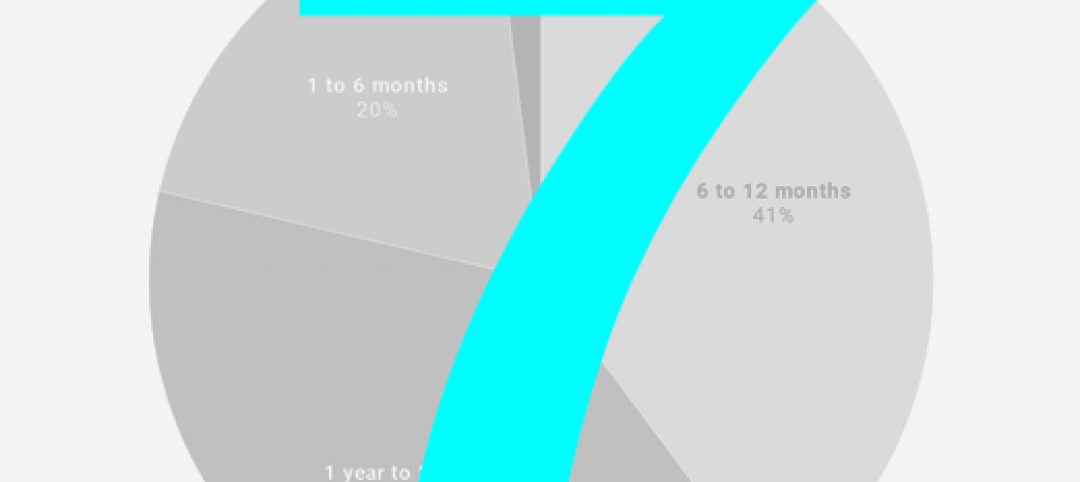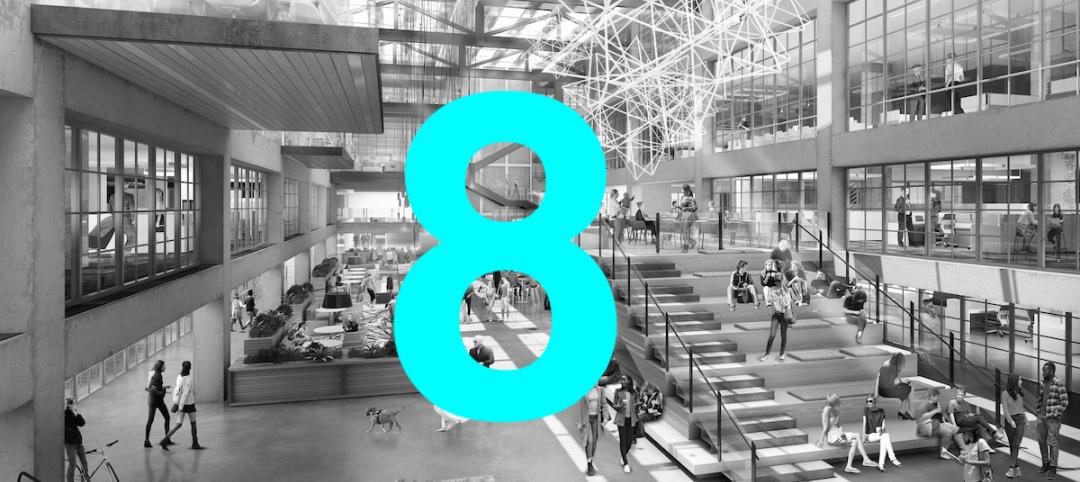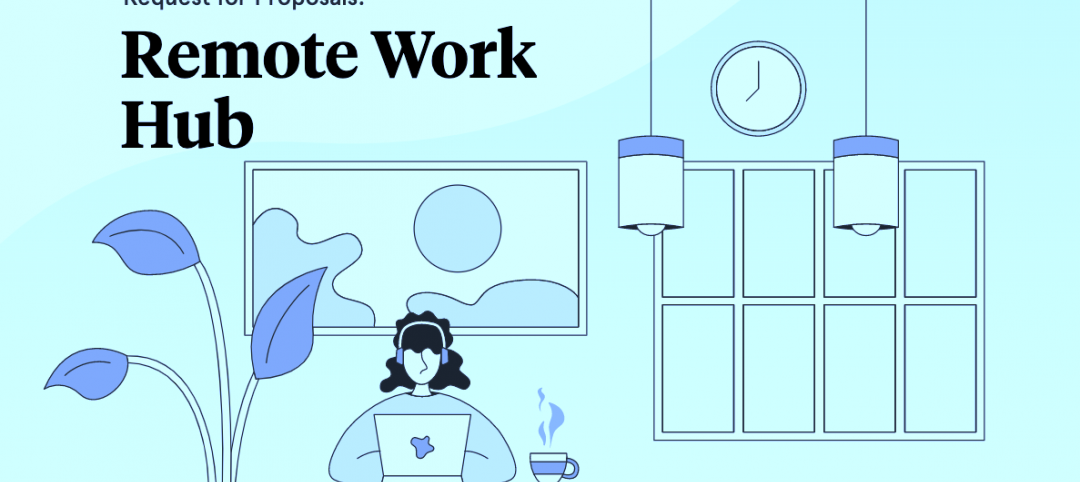As the coronavirus stubbornly persists in many parts of the U.S., COVID-19-specific buildings and products have been popping up in response.
Last January, Medline Industries, the largest privately held manufacturer and distributor of medical supplies in the U.S., started making face masks for the first time from a modified plant in Lithia, Ga., that, when fully operational later this year, will produce 36 million masks per month.
To support its core business units, Medline recently completed construction of a 130,000-sf, LEED-certified call center in Dubuque, Iowa, with over 1,000 workstations.
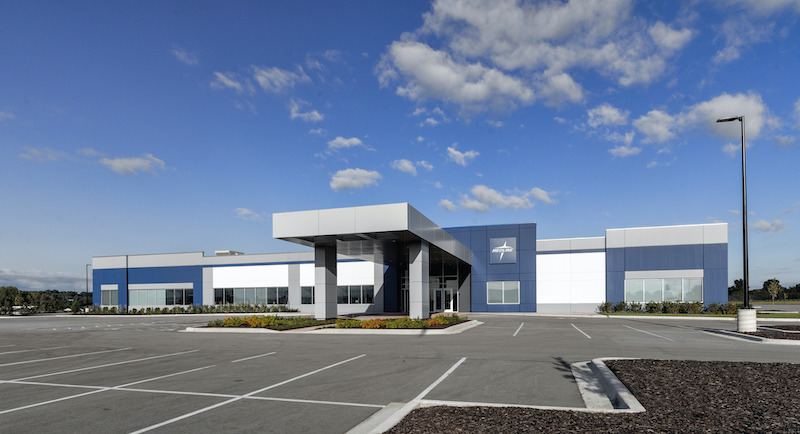 Medline's call center has over 1,000 workstations and is adding over 100 jobs to the market. Image: Charlie Mayer Photography
Medline's call center has over 1,000 workstations and is adding over 100 jobs to the market. Image: Charlie Mayer Photography
Working with the architecture design firm Ware Malcomb and general contractor Alston Construction, Medline’s goal for the call center was to create a “town within a town.” For example, adjacent to the cafeteria is a light-filled corner city center with access to an outside patio. A 5,200-sf gym/multipurpose room with a full-size basketball court is available to all employees. To encourage activity, the space includes a quarter mile track around the interior of the open office.
“It was our priority that the entire facility emphasizes connectivity and community,” says Dawn Riegel, Director, Interior Architecture and Design of Ware Malcomb’s Chicago and Oak Brook., Ill., offices. The call center added over 100 new jobs to the Dubuque market.
GETTING MORE PEOPLE VACCINATED FASTER
As of April 1, 29% of Americans had received one dose of the COVID-19 vaccine and 16% had received two doses, according to the Centers for Disease Control and Prevention. About 2.5 million people per day are being vaccinated, but the logistics of administering shots are still challenging for some municipalities and cities.
Among the solutions that have come onto the market is VaxMod, a modular system devised by the design firm Boulder Associates, which specializes in healthcare and senior living, and manufacturer The Boldt Company. VaxMod’s prefabricated units can provide safe and efficient COVID-19 vaccination settings for healthcare workers and individuals, and are set up for speedier delivery.
VaxMod consists of three modules, each 12- by 40-ft, although customers are allowed some tailoring. VaxMods can function as freestanding units or be connected to each other with segregated spaces for healthcare workers and patients.
According to The Boldt Company, VaxMod can vaccinate more than 1,100 patients per eight-hour shift with 27 full-time employees. That’s 39% more vaccines delivered per hour with 7% fewer staff than model vaccination clinics identified by the CDC. VaxMod is designed to handle both walk-in and drive-through patients, and is scalable to meet a specific community’s patient volume.
DRIVE THRU OR WALK-IN SERVCE
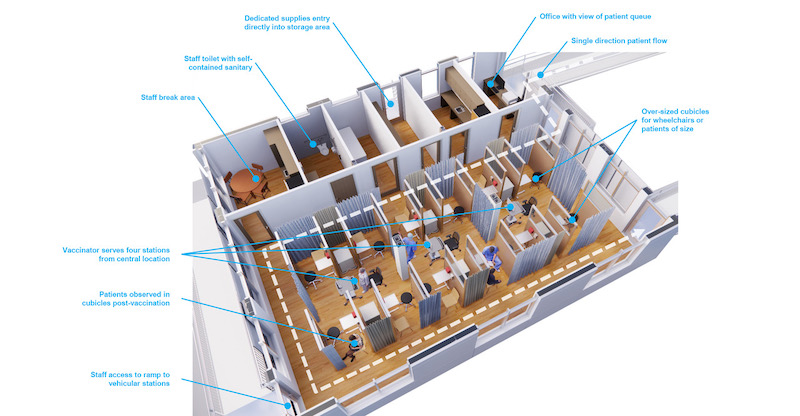 VaxMod is set up to deliver 1,100 vaccine shots during an eight-hour shift with only 27 workers. Image: The Boldt Company
VaxMod is set up to deliver 1,100 vaccine shots during an eight-hour shift with only 27 workers. Image: The Boldt Company
More precisely, VaxMod can be configured as a drive-through hub with a capacity for 104 vehicular vaccinations per hour. All traffic enters at one point for temperature and health screening. Individuals can check in and register for either walk-in or in-vehicle vaccinations. Canopies and covered stalls can be arranged in two loops around the central VaxMod, providing shelter for vehicles and resupply points for workers.
Simultaneously, VaxMod can serve 35 walk-in individuals per hour. Each unit houses 12 vaccination stations with specialized accommodations for individuals in wheelchairs. Individual cubicles are designed for privacy, social distance, and observation space after the vaccine is administered.
Boldt is cultivating sometimes of a specialty in the COVID arena. Last year, Boldt and the design firm HGA developed STAAT Mod, a prefabricated temporary hospital to help healthcare systems manage surge capacity during health crises. STAAT is short for Strategic Accuity-Adaptable Treatment, and the isolation rooms were designed with enough clearance for safe bed transfers, equipment, and a reclining chair. Boldt produces STAAT Mod and VaxMod modules in its Appleton, Wis., plant.
Also see: BD+C’s reporting on STAAT Mod
“Our experience in prefabrication means we can manufacture these facilities with better speed to market,” said Will Lichtig, executive vice president and chief of staff with The Boldt Company. “This allows us intense quality control, increased safety for our workforce, and the ability to meet an urgent need for healthcare organizations and our communities.”
Related Stories
Coronavirus | Sep 28, 2020
Evaluating and investing resources to navigate past the COVID-19 pandemic
As AEC firm leaders consider worst-case scenarios and explore possible solutions to surmount them, they learn to become nimble, quick, and ready to pivot as circumstances demand.
Coronavirus | Sep 24, 2020
The Weekly show: Building optimization tech, the future of smart cities, and storm shelter design
The September 24 episode of BD+C's "The Weekly" is available for viewing on demand.
Coronavirus | Sep 10, 2020
Mobile ordering is a centerpiece of Burger King’s new design
Its reimagined restaurants are 60% smaller, with several pickup options.
Coronavirus | Sep 9, 2020
Prefab: Construction’s secret weapon against COVID-19
How to know if offsite production is right for your project.
Coronavirus | Sep 3, 2020
The Weekly show: JLL's construction outlook for 2020, and COVID-19's impact on sustainability
The September 3 episode of BD+C's "The Weekly" is available for viewing on demand.
Coronavirus | Sep 1, 2020
6 must reads for the AEC industry today: September 1, 2020
Co-working developers pivot to survive the pandemic, and the rise of inquiry-based learning in K-12 communities.
Coronavirus | Aug 28, 2020
7 must reads for the AEC industry today: August 28, 2020
Hotel occupancy likely to dip by 29%, and pandemic helps cannabis industry gain firmer footing.
Coronavirus | Aug 27, 2020
8 must reads for the AEC industry today: August 27, 2020
Extended-stay hotels are the lodging sector's safest bet, and industrial real estate faces short-term decline.
Coronavirus | Aug 25, 2020
Co-living firm Common issues RFP for the future home office and work hub
Common, the U.S.’s largest co-living company, recently released an RFP for a “Remote Work Hub” to blend work and life from the ground up.
Coronavirus | Aug 25, 2020
Video: 5 building sectors to watch amid COVID-19
RCLCO's Brad Hunter reveals the winners and non-winners of the U.S. real estate market during the coronavirus pandemic.


